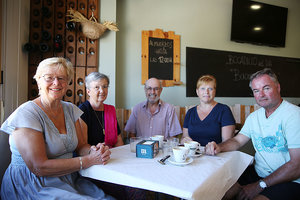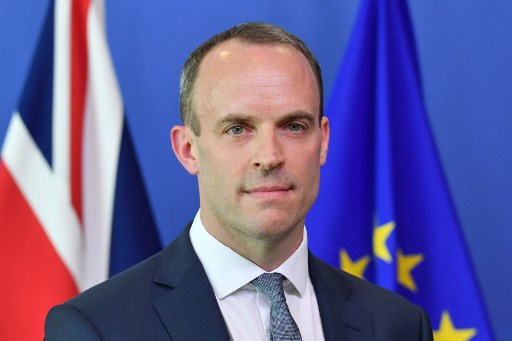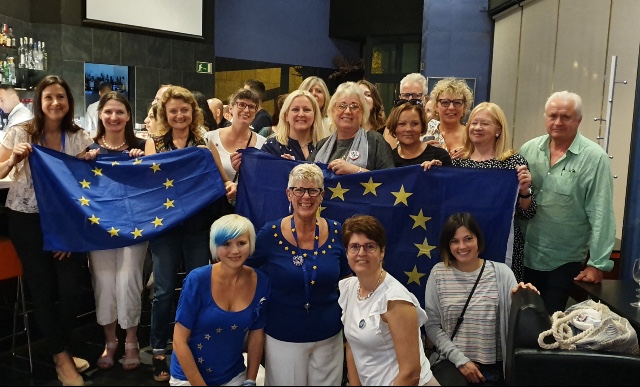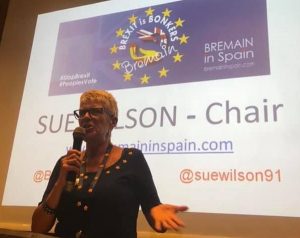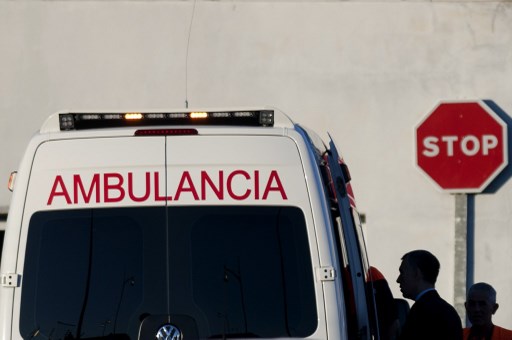I think I might have mentioned something about drinking gin too!
I described how we feel about our reception in Spain: how we appreciate the Spanish government’s efforts to protect us and the treatment we receive from the Spanish people.
We have many issues in common with EU citizens in the UK but, fortunately, we don’t have to deal with the daily intolerance and xenophobia that they sadly experience.
We are lucky enough to enjoy the warmth, welcome and generosity of our Spanish family, friends and neighbours.
My “thank you” to the Spanish people received a big cheer from the audience. I concluded with a round-up of the current state of play. With events happening so quickly, and being so unpredictable, it’s difficult to be certain of anything, but I did make a few predictions.
Firstly, we’re not leaving the EU on October 31.
Any chance of a deal based on what Boris Johnson has proposed to Brussels seems unlikely. If nothing is agreed by 19 October, law dictates that Boris must ask the EU for an extension.
It’s likely that this will be agreed by the EU and may be longer than the UK anticipates.
If Johnson doesn’t abide by the law, he would face unknown consequences. The EU has already said that someone other than Johnson can sign the letter, should that prove necessary.
Secondly, a further referendum is far more likely now than it has been for months.
Increasingly, it looks like the best way out of the Brexit chaos, and it would certainly be the most democratic route.
The people made the decision that started this ball rolling, and they should make the decision about how it ends.
Leo Varadkar, the Taoiseach of Ireland, said the British public would vote remain now, if given the chance. I agree with him.
Finally, I’ve always believed that the longer we delay Brexit, the less likely it is to happen at all.
Brexit is not inevitable – it can be stopped, it must be stopped, and it will be stopped.
That comment received the biggest cheer of the evening ….. well, except, perhaps, for “see me in the bar afterwards”!



